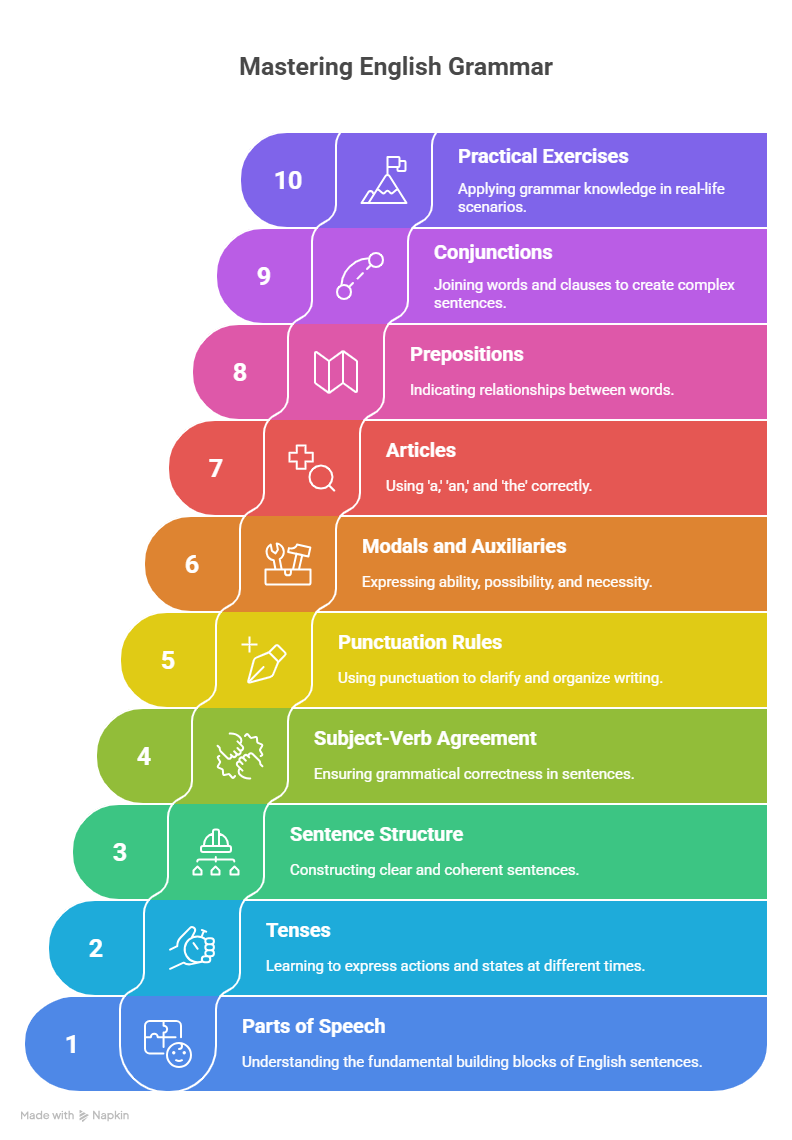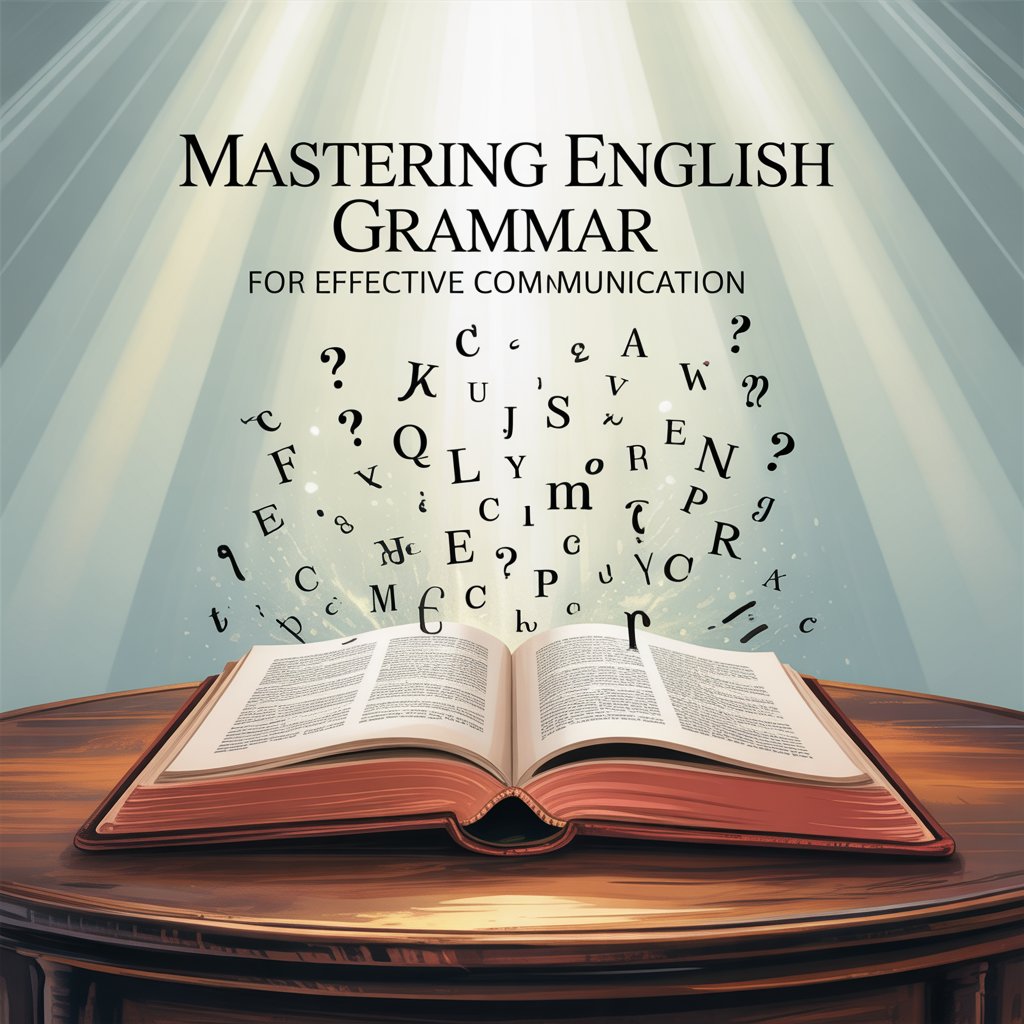
Mastering English Grammar for Effective Communication

Instructor
About This Course
Mastering English Grammar for Effective Communication
Are you struggling with speaking and writing confidently in English? Do you often feel uncertain about grammar rules or worry about making mistakes in conversations or emails? You’re not alone—and you no longer have to let grammar hold you back!
Introducing “Mastering English Grammar for Effective Communication”—your step-by-step guide to finally gaining clarity and confidence in English grammar.
Led by an experienced tertiary educator who understands the challenges faced by A1-B1 English learners, this course is designed to give you practical skills you can use every day, whether you’re a student, a professional, or simply looking to improve your communication.
What You’ll Learn:
The foundations of English grammar, from parts of speech to sentence structure
How to master tenses and use them in the right context
Secrets of subject-verb agreement, articles, modals, and more
The most common mistakes—and how to avoid them
Hands-on, real-life exercises to put your learning into action!
What Makes This Course Unique?
Engaging video lectures that break down grammar in simple terms
Interactive quizzes that make learning fun and help you measure your progress
Downloadable notes and PDFs for easy revision anywhere, anytime
Practical activities modeled after real-life scenarios, so you can start using your new skills immediately
Who Is This For?
If you are a university or college student, a working professional, or anyone eager to master English grammar for clear communication—this course is for you!
Ready to level up your English? Don’t let grammar stop you from expressing your ideas. Join “Mastering English Grammar for Effective Communication” today and take the first step toward fluency and confidence!
Enroll now at Digyprime.com and unlock your potential!

SITI NUR ATIKAH BINTI NAZRI
Curriculum Overview
This course includes 1 modules, 12 lessons, and 5:00 hours of materials.
Understanding the parts of speech is fundamental to mastering English grammar and effective communication.
Tenses are an essential aspect of English grammar, allowing speakers and writers to express actions or states of being at different times: past, present, and future. Understanding tenses is crucial for conveying clear and accurate meaning in both spoken and written communication. In English, there are three main tenses: present, past, and future, each of which can be further divided into four aspects: simple, continuous (progressive), perfect, and perfect continuous.
A strong command of sentence structure is vital for clear and effective communication in both spoken and written English. Sentence structure refers to the way words, phrases, and clauses are arranged to form meaningful sentences. Well-structured sentences help ensure that the intended message is communicated accurately and logically to the reader or listener.
Subject-verb agreement is a fundamental rule in English grammar that ensures sentences are grammatically correct and easy to understand. The concept refers to matching the subject of a sentence with the appropriate form of the verb, considering whether the subject is singular or plural. Proper subject-verb agreement is essential in both spoken and written English, as mistakes in this area can lead to confusion or misinterpretation.
Punctuation is a crucial component of English grammar that serves to organize and clarify written communication. Proper punctuation not only makes writing easier to read but also prevents ambiguity and misunderstanding. The main punctuation marks in English include the full stop (.), comma (,), question mark (?), exclamation mark (!), colon (:), semicolon (;), quotation marks (" "), apostrophe (’), parentheses (()), and dash (–).
Modals and auxiliary verbs are important elements in English grammar that help express ability, possibility, necessity, permission, obligation, and other moods. Mastering their use allows speakers and writers to communicate more precisely and appropriately in various situations.
Articles are small but essential words in the English language that precede and modify nouns. There are two types of articles: definite and indefinite. The definite article is “the,” and the indefinite articles are “a” and “an.” Mastering the use of articles is crucial for speaking and writing accurately, as they help specify whether we are referring to something specific or something more general.
Prepositions are critical elements in English grammar that show the relationship between a noun (or pronoun) and other words in a sentence. They often indicate direction, location, time, or the way in which something is done. Mastering prepositions helps learners communicate precisely and avoid confusing or awkward sentences.
Conjunctions and linking words are essential tools in English grammar, allowing writers and speakers to join words, phrases, or clauses, and to create complex, coherent sentences. Mastery of conjunctions helps in expressing ideas clearly, showing relationships between thoughts, and making writing or speech more engaging and logical.
Applying theoretical knowledge to real-life situations is the most effective way to master English grammar for both speaking and writing. Practical exercises and real-life applications bridge the gap between classroom learning and everyday communication, providing learners with opportunities to practice and reinforce their grammar skills in meaningful contexts.
This quiz requires you to answer questions related to Parts of Speech and Tenses.
Course Certificate

Course Specifications
Send Course as Gift





Reply to Comment